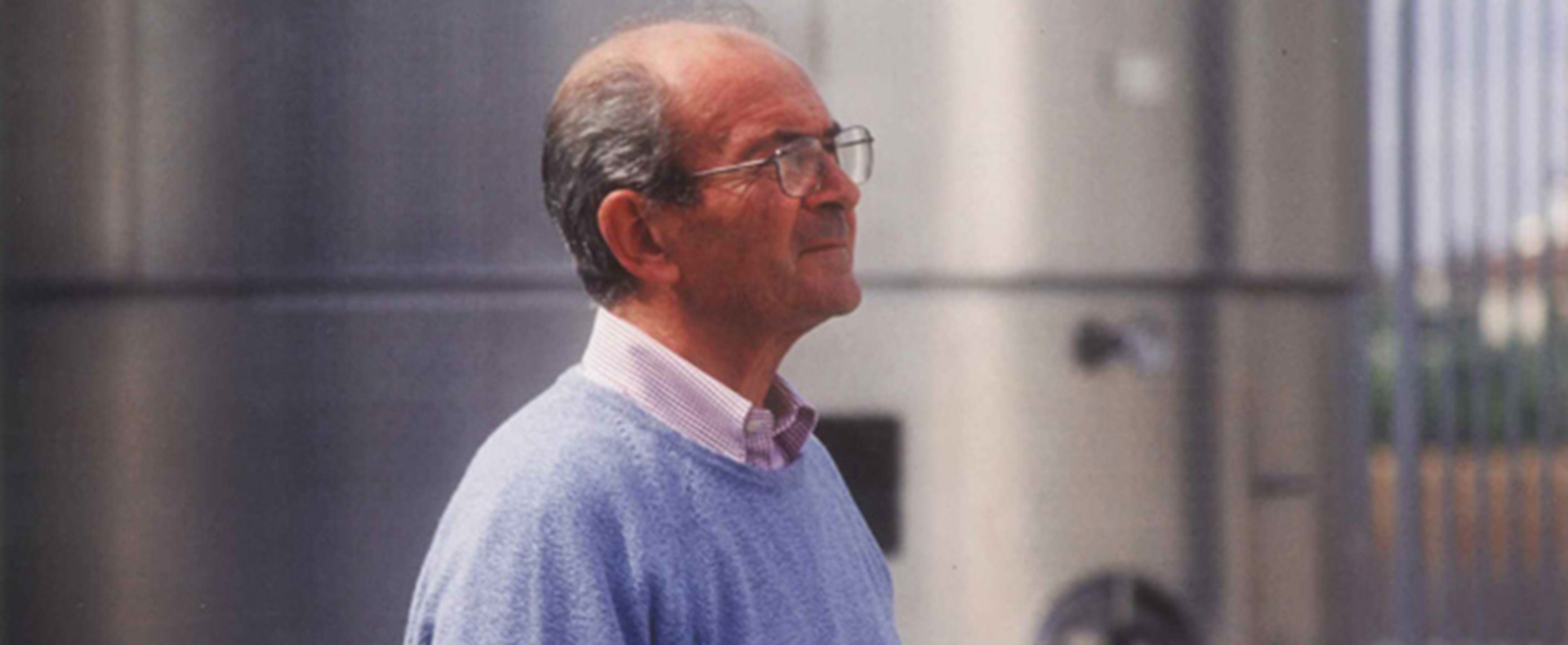The story of Cantele founder Giovanni Battista Cantele’s “reverse” post-war immigration has been told many times.
In an era when most southern Italians were heading north to find work in the factories of Milan and Turin, Giovanni Battista headed from Imola in Romagna to Lecce in Puglia. He had traveled there many times to broker the sale of grapes to be sent to the north. And while many of his contemporaries continued to operate in the north, traveling south as necessary, Giovanni Battista set up shop in Lecce where he worked directly with growers whose grapes were used to obtain darker color and higher alcohol levels in the cooler climate of the north, where — in a time before climate change — winemakers struggled to quench the thirst of Italy’s emerging middle class.
The story of Giovanni Battista’s son Augusto has also been told many times: when the family moved south, he stayed in the north. He was a teenager when he began his studies in enology and started to work in wineries in the Veneto where white grapes — not the red of his family’s adoptive Puglia — dominated the viticultural landscape.
Augusto would ultimately return to Puglia and although he was initially reluctant to embrace his parents’ new homeland, he would become one of the region’s greatest advocates and a pioneer in Puglia’s long legacy as one of the great wine growing regions of the world.
In the 1990s, he invited two English-speaking “flying” winemakers, Australian Kym Milne (now a Master of Wine) and Warren Gibson to consult at Cantele.
Above: flying winemakers Warren Gibson (left) and Kym Milne at Cantele, circa 1993.
Last year, I spoke with both Kym and Warren, who seemed thrilled to reminisce about their time with Augusto, whom they both adored.
It’s important to remember that, at the time, the wines of Puglia were still sold primarily in bulk in the north. While many Italians drank Pugliese wines on a regular basis at that time (and mostly from a bag-in-box), it’s more likely than not that they had no idea where the wine came from.
Augusto had a vision for the future of Pugliese wines: long before anyone could imagine the Italian wine renaissance that was about to unfold, he wanted to ship wine in bottle beyond Italy’s borders. And his first target market was the United Kingdom, where there was a great thirst for inexpensive but high-quality white wine.
It’s interesting to note that before the second world war, Bari and Lecce were second only to Alessandria (Piedmont) in their production of Italian wine and that Puglia produced both white and red wines.
After the war, however, red would come to dominate viticulture there as the north struggled to keep up with demand for white wines.
Augusto’s father surely had memories of Puglia’s past “white” glory. And that fact must have been present in Augusto’s mind when he studied white winemaking in the north as a youngster.
Echoing something you often hear people say about great winemakers like Bartolo Mascarello and Bruno Giacosa, Warren talked to me about Augusto’s intimate knowledge of Puglia’s grape growing landscape. As a broker, his father knew and was courted by the region’s best growers. And Augusto was keenly aware of who grew what, how well, and how old the vines were, said Warren in our chat.
“He was just so passionate about Puglia and its grapes and wines,” said Kym. “And he didn’t want to make ‘Californian’ wine. He wanted to make Pugliese wine.”
Together the three worked with growers and helped to reshape vineyard management practices there.
Ripeness was an issue: growers tended to pick their white grapes too late, said Kym, and it only took a few vintages for them to achieve the acidity levels they need for the wines that Augusto envisioned.
They brought new French casks to the winery and began fermenting in barrique. They experimented with cultured yeasts.
Together, they created a new benchmark for the production of white wine in Puglia and their UK campaign, literally transformed the potential for Pugliese winemaking overnight.
“He was very quiet by nature and very thoughtful,” remembers Kym fondly. “He liked to have a good laugh and he was incredibly generous. He never let me pay for a meal. He was a very ‘positive sort’ of character.”
“He had a sympathetic relationship with the growers,” said Warren, “and he had a great understanding of the region and the grape varieties.”
It was an exciting time when “many of the grapes were still bush-trained. Many of the growers didn’t consider old vine material as precious but Augusto helped to change that.”
Above: Warren Gibson (left) visited the Cantele winery last year. That’s Gianni Cantele, Augusto’s son (center), and Warren’s wife Lorraine Leheny, also a winemaker.
Warren and Kym still stay in close touch with the Cantele family and both of them told me that their time with Augusto was one of the greatest experiences in their careers as winemakers.
(Kym told me that he remembers the very young Paolo and his fondness for air guitar, a first indication of Paolo’s passion for hard rock.)
Little did they know that their work together would become the new model for Pugliese winemaking as we know it today.
Sadly, Augusto prematurely left this world for a better one. But I can tell you from personal experience, that winemakers and grape growers from Puglia to Campania remember him as one of the greats of his generation, a man who reshaped the region’s destiny as a producer of fine wines.
His legacy lives on through his children and his brother Domenico’s children. In an Italian wine world where the impact of corporate culture has come to dominate taste, theirs is still a true family affair.



